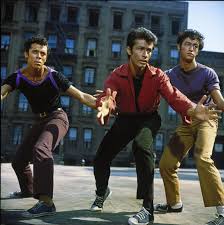“It is widely held that too much wine will dull a man’s desire. Indeed it will… in a dull man.” – Narrator explaining the hero’s actions, Tom Jones
Tom Jones is probably one of the most forgotten of Oscar movies, and for fairly good reason. Although clearly a ground breaking film in some regards (at least in terms of Oscar winners), it is also very badly dated in 2015 and also falls under the most dreaded of Best Picture stigmas: stuffy period piece. A tale of rural heredity woes and 18th century parody doesn’t seem like a particularly enticing film for good reason – it is not. Still, the times in 1963, they were a-changin’ and in many ways Tom Jones is a reflection of those changes, even while rooted firmly in another era.

The modern Tom Jones poster, whose variations grace most DVD covers. A lipstick kiss! What a scoundrel!
Tom Jones begins with a strange, silent-movie style prologue, where the fantastically wealthy farmer Squire Allworthy (George Devine) finds a newborn baby in his bead. Ferreting out that the baby is the bastard child of two of his servants, Allworthy sends the parents away and opts to raise the baby, christened Tom, as his own. Twenty years later, Tom (Albert Finney) is a bored philandering youth who takes little seriously. Despite his many amorous conquests, Tom truly loves his neighbor, Sophie Western (Susannah York). Sophie’s father and Tom’s adopted cousin conspire to have him removed from Allworthy’s good graces for various reasons (Sophie’s father doesn’t want his daughter involved with a poor man, the cousin is looking out for his inheritance) and Tom is sent packing, penniless, to London. On the road, he encounters a set of wacky characters and adventures until learning Sophie has run away to escaped a planned marriage to a horrible bore. Tom conspires to win her back.
Tom Jones is without a doubt the most risqué best picture up to this point in time. Where a lot of Best Pictures like All About Eve or From Here to Eternity hinted at sex or perhaps had couples rolling around in bathing suits, Tom Jones shows lovers under covers. It is also the first (and only?) Best Picture winner to have both an incest joke and a joke about snorting opium. But it is also incredibly boring. After the strange silent opening, the movie “properly” starts with a very long fox hunt scene. Although technically very good (and realistically gory), the scene goes on and on. A lot of jokes, like Sophie’s father’s drunkenness and Tom’s unstoppable libido, are beaten into the ground. Also, Tom is supposed to be a rakish but charming youth, but many of his actions, particularly his endless skirt chasing, make him really unlikable. He comes off very poorly in today’s world. The best scene is one where Tom and one his many amours, starving after a long journey, eat a ton of food, while trying to romance each other.

Tom at the dinner romance scene. The actors ate so much during filming that they were sick for days.
The movie makes a lot of strange choice that I assume were very popular in the day but just feel weird now. There are a lot of self-referential bits and characters making a remark and literally winking at the camera/audience. One, where Tom throws his hat on the camera as he walks by to help hide the nakedness of a companion, is pretty clever, but the rest are just distracting and annoying. It is also weird to see Albert Finney, known mostly for playing the aging curmudgeon in movies like Annie or Big Fish, as a young and jolly chap.
I don’t think many people remember Tom Jones and for good reason – it is a very forgettable Oscar winner. To me, the most interesting thing about it is to examine the shifting cultural standards the film clearly represents. However, Oscar must not have been too happy with this win, since the next batch of winners is among the most conservative and family friendly.
Trivia: “What’s New Pussycat?” singer Tom Jones took his name from this movie; This movie had three best supporting actress nominees (Diane Cilento, Edith Evans and Joyce Redman) but all lost to Margaret Rutherford in The VIPs.
Other Oscars: Best Director (Tony Richardson); Best Adapted Screenplay; Best Music Score
Box Office: $37.6 Million (4th for year)
Other Notable Films of 1963: Cleopatra$*; How the West Was Won*; It’s a Mad, Mad, Mad, Mad World; The Sword in the Stone; The Birds; From Russia With Love; Bye Bye Birdie; The Great Escape; 8 ½; Lilies of the Field*; America, America*
$Top Box Office Draw – $57.7 Million
* Best Picture Nominee








